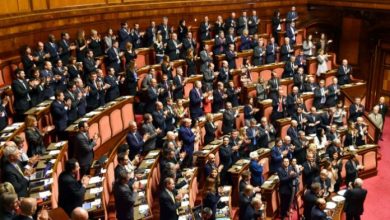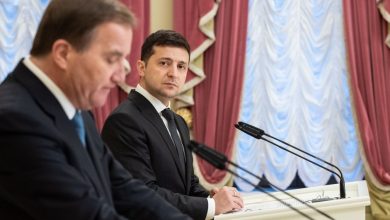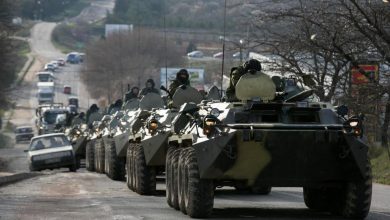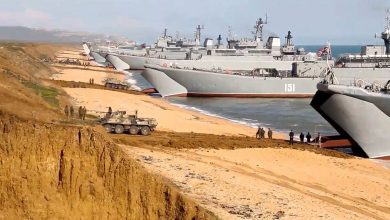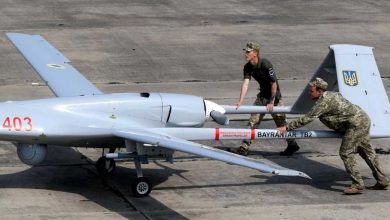[Opinion] Turkey: Russia’s Trojan Horse in NATO
Apart from the antipathy the US feels for the current government, Turkey is in a vital geopolitical region which should not be abandoned.
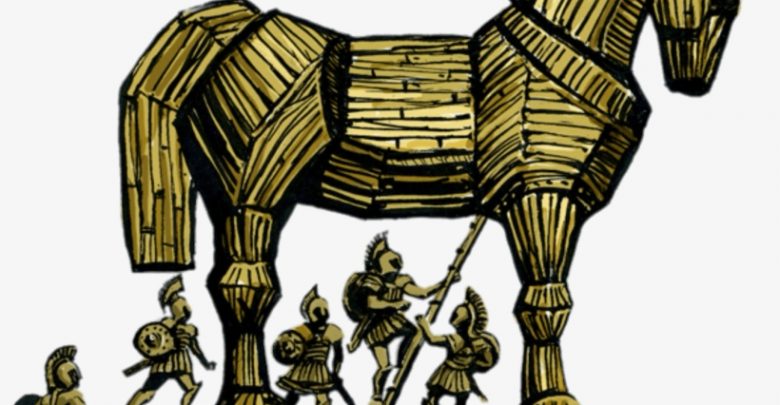
I have been focusing on Ankara’s foreign and security policies for a while now. Because another intersection field for the balances inside the regime is the extent of foreign and security policies. The purchase of the S-400 missile systems from Moscow and their deployment in Turkey soon extremely disturb the US and other NATO members. The perception of the S-400s being a Trojan horse placed inside the NATO is an opinion ≈ accepted primarily by the US and all other NATO members. The West wonders why Turkey makes moves which will eventually isolate them from the allegiance. However, rather than Ankara’s temporary tendency towards Russia (or to use it as a negotiation tool), they have acknowledged that Turkey is making a long haul decision about its foreign and security policies which has potential to create a geopolitical earthquake! The purchase of the S-400 from Russia is just the tip of the iceberg. As a matter of fact, Turkey had already entered Kremlin’s orbit as of 2016. Aside from the military collaboration, there is an increasing Russian effect gathering around tens of topics such as intelligence sharing, strategic partnership, intensifying economic and politic relationship, the existence of a Russian centered Ankara in the field in Syria, Russia’s nuclear energy transfer, intensifying relationships towards energy politics with Moscow, direct contact of Putin’s private army Rosgvardia with the regime in Ankara,
The US and Western allies are aware of this situation. The letter, which was written by the US Secretary of Defence Patrick Shanahan and sent to his counterpart Hulusi Akar, apparently was indited around this framework of awareness. It is being clarified that the new generation F-35 NATO combat aircrafts will not be delivered to Turkey.
The US reminds the decision makers in Turkey to watch their step and state “S-400s are our red line, should you buy them, you will bear the consequences!”. Just like the famous letter which was written by the US President Johnson back in 1964, this letter is a very important document concerning foreign and security policies that points out to a new turn for Ankara. Johnson had sent the letter to Ankara in order to change Ankara’s decision upon Turkey, which had become interested in Cyprus as of the end of the 1950s, started adopting power politics over the Turkish Cypriots in the eastern Mediterranean and demonstrated an increasing potential to make an invasion in Cyprus. When Ismet Inonu had received the letter, he had stated that “A new world order will be established under new conditions and Turkey will take its place there!” and gave signals about Turkey’s intention to walk away from NATO and slide into Russia’s orbit. This was a bluff of course and as a result, Ankara had changed his mind about invading Cyprus instead of approaching the Soviets which had been the primary threat for Ankara. The international two-block system of the period had found the elites in Turkey to form an alliance outside the NATO (and the US) rationally dangerous. However, there is a different perception today. A group of Eurasian elites, who are formed by civilians and military officials focusing on security, think that a tendency outside the US-NATO could give Turkey a chance to become a regional power since the 1990s. TSK (Turkish Armed Forces) elements, who had claimed that the Western normative values (human and minority rights to be excluded from state’s domestic affairs) would pose a danger of disintegration to Turkey after the 28 February 1997 military memorandum, had shown their clear stance against the US. However, they did not take any action about the tendency towards NATO. In that period, the majority of the military officers inside the tutelage system were in favor of proceeding with NATO. However, this anti-West fractions had formed the vast majority of the military officers who had taken part in the Ergenekon, Balyoz, Sarikiz, and Ayisigi coup plans. They had supported that the Western allegiance must be abandoned and new benefit-oriented allegiances and collaborations such as Russia, China, and Iran must be targeted. They had thought that this was necessary in order for Turkey to become a rising power in the multipolar world.
Turkish elites, who had suffered from the Treaty of Sevres, were being influenced by the “grand Turkey rising again” rhetoric whether it came from the left-wing or the right-wing. The anti-Western Eurasianist group was given a chance to be the effective determinant on foreign and external politics due to the fact that Erdogan is idolized in the center-right conservative base and had been forced to cooperate with the Eurasianist deep state after 17 December.
Moscow was extremely delighted with this situation. Russian Eurasianism has already been expecting the Atlantic wing to have a deficit somewhere. And when this deficit happened to be Turkey, which controlled the line from the Black Sea to the Mediterranean, they could not be more pleased. Because the Russian armada, which would have the ability to sail to the Mediterranean through the Black Sea for the common security strategy of the Russian states, would gain a vital advantage in the context of Russian influence to be determinant in Europe. Within the scope of the collaborations I have analyzed above, Ankara’s departure from the US-NATO allegiance would bring together a geopolitical dominance that was not even possible during the Soviet period for the Russian armada, which is currently restrained in the Black Sea by the NATO. Moreover, the US and NATO’s fractional departure from Turkey would strengthen the possibility of the freed up space to be filled by the Russian soldiers. Ankara, which would not be protected by the West, would only be a toy for Kremlin. The Russians, who are aware of this, were ready to provide any kind of support requested by Erdogan and the Turkish Eurasianists. This heavy damage created by the S-400s on the Turkish-US relations would bring a domino effect that would actualize all of these plans.
The letter of Shanahan is a more dramatic message compared to the letter of Johnson in this respect. Although it does not state that it will be deadly to approach Soviet Russia, which had requested a military base in order to control Marmara and demanded land from Turkey in the Potsdam and Yalta Conferences with diplomatic notes, it was written in a manner that expects the Turkish decision makers would proceed with the purchase of S-400s. The letter whispers Ankara, which had realized that Turkey could not maintain its territorial integrity and formed an allegiance with the West after 1945, that the same exact dangers exist today, but only alludes to it. The decision of Pentagon towards sending back the Turkish pilots to Turkey before their training is over in the US indicates that the letter of Shanahan is actually more benign and diplomatic than the real feelings of the US. While the letter of Shanahan was addressed to the Turkish elites focusing on security, the decision of Pentagon must be perceived as a message sent directly to the Eurasianist fractions in Turkey.
Apart from the antipathy the US feels for the current government, Turkey is in a vital geopolitical region which should not be abandoned. Furthermore, the US sees the fact that the problem in Turkey today is not only the government. The support provided by Temel Karamollaoglu, the leader of Saadet (Felicity) Party, to the Eurasianists justifies the concerns of the US. The statement of Karamollaoglu reflects the general perception in Turkey today: “The US is surrounding us all around. Why did those two aircraft carriers arrive in the Mediterranean? Turkey is about to be driven into a corner especially by the US. With regards to the approach of the US and Israel, the purchase of the S-400s is a must for us. We support the policy followed by the government in this matter. The government should not make a compromise. Our relationship with Russia about the S-400 matter is finalized, the production is completed, and the deliveries will start in two months the latest. If Turkey backs off from this point, no one will trust Turkey anymore. The association formed by Turkey, Iran, Qatar, and Russia bears strategic importance. We will support the government in this matter. As it is understood from this statement, Saadet (Felicity) Party openly supports the Eurasianist tendency and perceives the US (and NATO) as the enemy. Although CHP (Republican People’s Party) does not make such clear statements, they support the idea of delaying the S-400 purchase and does not openly support the NATO membership. Besides, the nationalists, who are the dominant majority in CHP as the nationalist left-wing, is beyond Erdogan and AKP (Justice and Development Party) when it comes to opposing the US and West. In this sense, CHP houses an important majority that openly supports the Eurasianist ideology. Furthermore, the nationalist-Kemalist CHP base also stands with the government against the US and West. None of the opposition groups support the Western values or the NATO allegiance, and only a few writers, who support these values, are accused of not being nationalist enough and even treason.
In conclusion, Erdogan’s “I am not saying Turkey will purchase S-400, it already did!” outburst is very important. Erdogan challenged the US and stated that the sanctions imposed by the US against Turkey will not have any influences over Turkey whatsoever, and added: “The ones who think that they would bring Turkey in its knees with economic traps (the US sanctions) apparently had never known this nation (Turks) well enough. We are a nation that spits blood and says “we drank cherry juice” when needed, and does not hesitate to risk lives and properties for independence whenever necessary” in order to point out that Turkey is ready to pay any kind of price about its new tendency. In fact, Erdogan is not alone in this matter. Frankly, the majority of the Turkish people have been exposed to a great and one-sided anti-US and anti-West propaganda since 15 July 2016 (military coup attempt), and they still are. The anti-Western attitude of the opposition in favor of the government that I mentioned above is an important indicator of this situation. If CHP and other opposition could have managed to support the Atlantic relationships and Western norms (human rights and democracy) and adopt a compatible critical attitude, Erdogan and the Eurasianists would not be able to embark Turkey on an adventure so easily concerning the foreign and security policies.
When Turkey is viewed from the scope of this rooted ideological structure, it seems that the country has become a typical radical Middle East community. The masses, who are fed with a hybrid nationalist-Islamist ideology, has become a standardized and radicalized community, who views the incidents from an ideological perspective and far away from rational wisdom, similar to the ones occurred during Saddam’s Iraq or Gaddafi’s Libya. In this regards, Turkey has completely abandoned the appearance of being a NATO member. Today, the Western and NATO effects do not exist in Turkey anymore in terms of strategy and values. Turkey became a despotic country that abandoned all of the values of the civilized world, drifted away from NATO and EU standards completely, and exists in a different league today due to the fact that it became a country that tortures its own diplomats; discharges, tortures, and arrests its own generals, admirals, and officers with fabricated coup accusations since they support the Western and Atlantic allegiance; shows similarities with Russia in every field from politics to human rights.
The US decision towards not providing a training due to “security reasons” for the pilots of Turkey, which already drifted away from NATO, indicates that the US does not recognize Ankara as a friend and ally anymore. Washington appears determined not to allow Turkey to be “Russia’s Trojan horse in NATO”. All that remains is the situation “becoming official”. Should there be no changes in the conditions during the upcoming period, we might also witness Turkey legally being separated from the Atlantic structures.
Dr. Mehmet Efe Caman is a Scholar of Politics at Memorial University of Newfoundland (MUN). Dr. Caman’s main research focuses on Democracy, democratization and human rights, Turkish politics, the Middle East, Eurasian politics and post-Soviet regions, the European Union. He has published a monograph on Turkish foreign policy, numerous book chapters and scholarly articles in English, German and Turkish about topics related to his research areas.
Source: politurco
